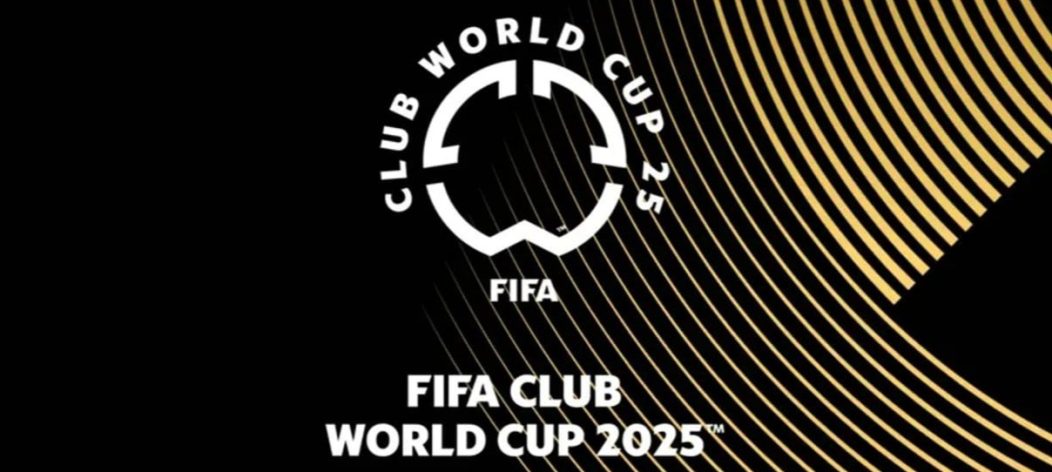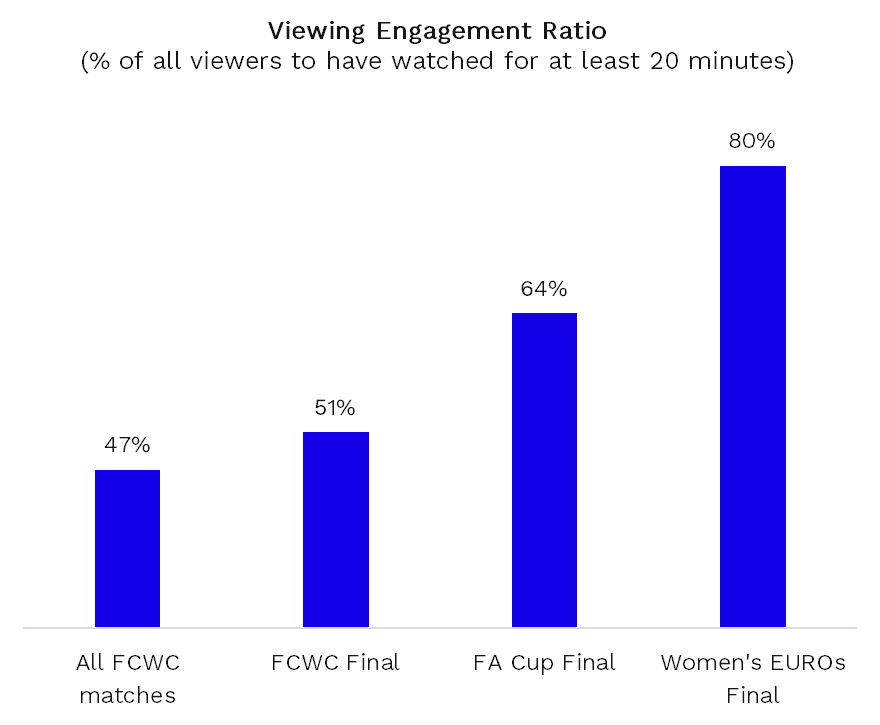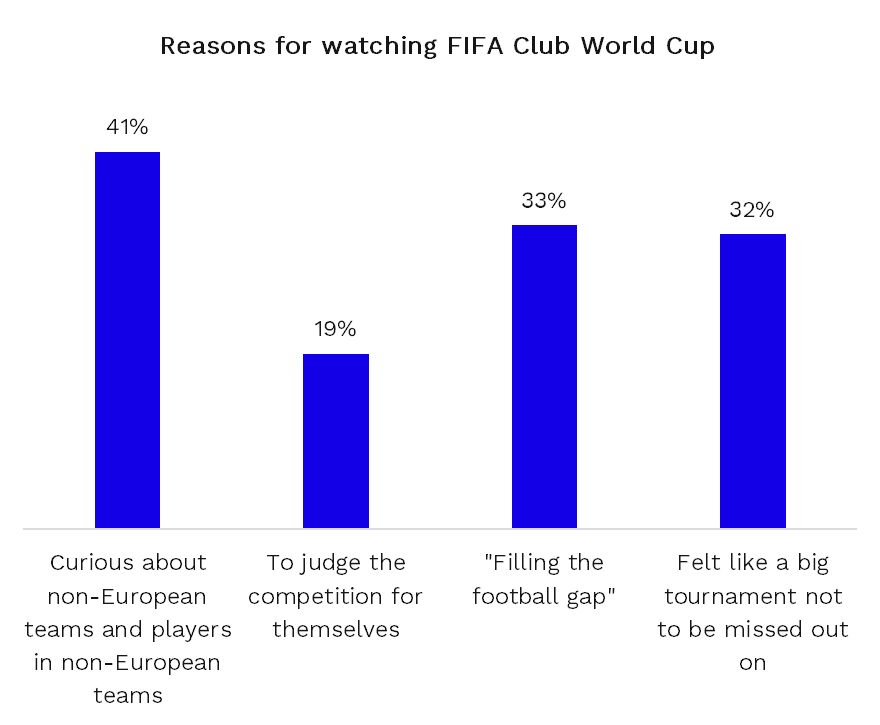FIFA Club World Cup: Delivering intrigue, but did it also deliver interest?
- August 1, 2025
- Reading time: 3 min

By Martyn Turze | Head of Consumer Research
Around six weeks ago, ahead of the FIFA Club World Cup starting, I wrote about my curiosity as to how successful it would be from an audience perspective. Since then, FIFA’s big, new tournament has come and gone.
During DAZN’s coverage of the final, Emily Austin announced during her interview with Donald Trump that they had reached almost 3 billion viewers globally. My curiosity was about more than just the reach of the audience, it was about how much people would watch and why.
At Publicis Sport & Entertainment, we analyse and investigate the biggest stages in sport. By combining TV audience figures with survey results we can understand more about people’s levels of engagement and their motivations for doing so.
Firstly, a comparison of total reach to duration of viewing on Channel 5, the main driver of audiences in the UK, provides a helpful barometer of engagement. The higher the proportion of total viewers to watch for a sustained period, the more engaged/invested the audiences are.
In the case of the FIFA Club World Cup, less than half of the people who watched at least 1 minute of any match across the tournament watched at least 20 minutes of that match. This proportion increased when looking at the final in isolation, but only marginally. This level of engagement suggests that the audience wasn’t particularly engaged and absorbing the action. Rather, it suggests an audience watching for a bit out of curiosity, not out of genuine interest. Checking it out, not taking it in. For context, it doesn’t compare well to the FA Cup final or the Lionesses’ final.

Personally, having ignored the recent international break, the EFL Play-Offs, and the UEFA Champions League final closing my interest in the season already feels like a long time ago. Publicis Sport & Entertainment surveyed fans after the Club World Cup ended, and the results support this conclusion. 2 in 5 were watching out of curiosity about the non-European teams, whether it was the teams themselves, or players who were known for having played for European clubs now playing elsewhere (I’m calling this the Messi effect). 1 in 5 were watching to be able to judge the competition for themselves, having heard good and/or bad things about it.
As I had suspected might be the case in my preview piece, 1 in 3 people were watching because “it filled the football gap”, providing football during the summer break from regular league football.

Whilst audiences were predominantly curious and exploratory around this competition, FIFA will be encouraged that 1 in 3 reported it felt like a big tournament they didn’t want to miss out on – something that FIFA will be looking to build upon with future editions.
The key challenge for FIFA’s Club World Cup is that it can’t rely on people watching out of a sense of supporting one’s country, at least not in the UK. Naturally, fans of the clubs involved followed their teams (a reason answered by 80%, but notably not all, of Chelsea and Manchester City fans), but there isn’t the easy win for attracting a more casual/wider audience through patriotism or national identity.
That is in stark contrast to international tournaments, as demonstrated by the Lionesses’ recent Euros victory. My grandmother-in-law, who has no interest in football, told me hours before the match that she’d be watching to cheer on England. Regarding the Club World Cup, she had no idea that it had taken place, or that an English club had appeared in the final, let alone won it. And she was clearly not alone in that, with the Lionesses’ final peaking at 11.6m on BBC One plus a further 4m on ITV, compared to a peak audience of 2.4m on Channel 5 for the final of the Club World Cup.
FIFA may be encouraged by some of the initial results in what was the first iteration of the competition in this form. It represents significant progress from where it had been in its previous incarnation, providing them a new stage to work with. However, FIFA’s future strategy must focus on driving the narrative to a wider audience about why they should care more about it.
MAKE THE FIRST MOVE.
Please get in touch using the form here. By filling out this form, you agree to opt-in to emails from Publicis Sport & Entertainment.


